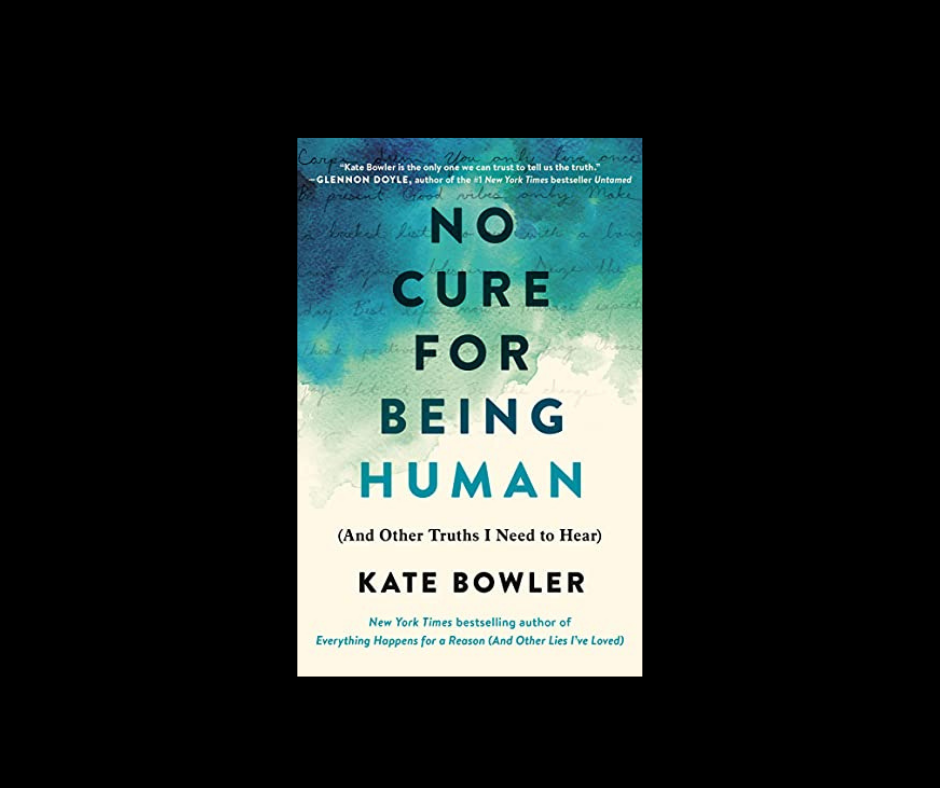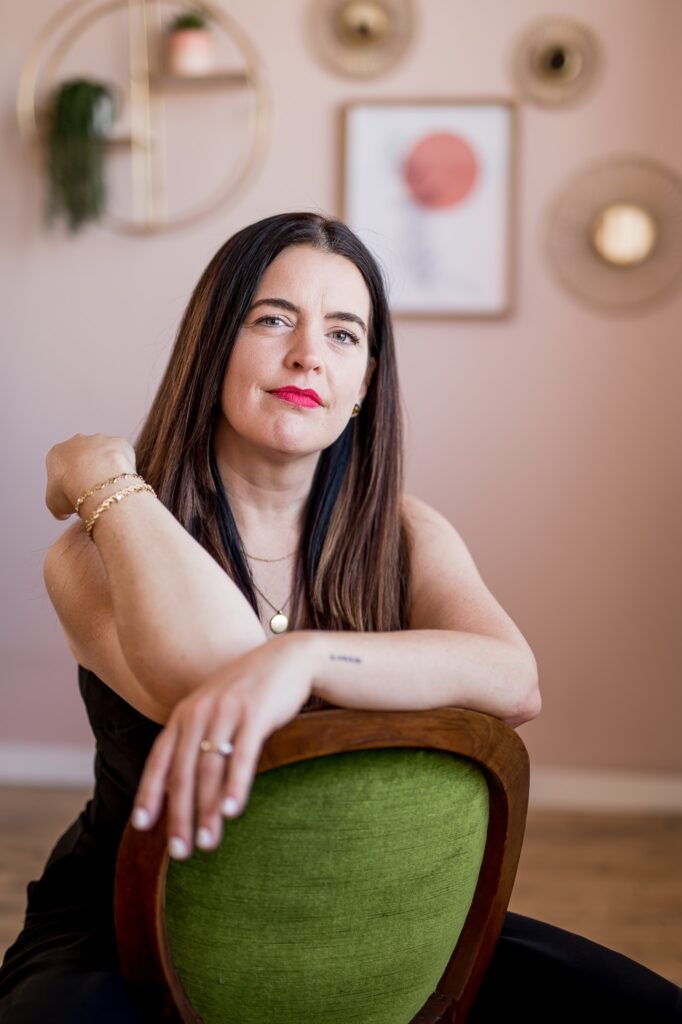Everyone wants to emerge from life events that involve suffering and loss having learned invaluable lessons, right?
Of course not! We want all that yucky stuff to never happen at all. We want life to be easy, with just the right amount of challenge to make us feel vigorous and valiant. Then, we want to be recognized and rewarded for our resilience, intelligence, and overcome-all-odds powerfulness.
So what do we do when the door slams in the face of our imagined Neverland and bruises our noses?
Kate Bowler’s new book, No Cure for Being Human: (And Other Truths I Need to Hear) (Random House, $27) takes on the answer. Bowler is host of popular podcast Everything Happens, and an associate professor of the history of Christianity at Duke University.

Her first book, Blessed: A History of the American Prosperity Gospel, explored the Candyland idea that God rewards people with health and wealth if they have the “right kind” of faith. Bowler crisscrossed the United States and Canada while interviewing leaders of megachurches and televangelists, along with everyday believers trying to find spiritual meaning in their lives.
For her follow-up, the New York Times-bestselling memoir Everything Happens for a Reason: And Other Lies I’ve Loved, the only traveling Bower had to do was to the world of oncology, after being diagnosed with stage IV colon cancer at age 35. In some ways, Bower is already interviewing herself in Everything Happens, which could be considered a prequel to her latest memoir-outing, No Cure. Having tested the meaning of suffering literally, internally, and externally in conversation with doctors, loved ones, and fellow practitioners of faith, Bowler in both memoirs undergoes self-examination and considers if all tragic events in life are tests of character.
No Cure begins to answer the existential question: How do we have the audacity to get up each new morning, choose life, and battle on?
Largely, Bowler decides, it is not through checking off bucket lists or “seizing the day,” but through humor and honesty practiced without surrender. She ultimately concedes that there is (sing it with me, choir) no cure for being human.
One night, Bowler is pouring through hundreds of medical reports, trying to figure out how the cancer in her colon appeared and metastasized across her liver. On a phone call with her mother, Bower declares herself useless.
Her mother says, “You can’t outlearn this, my love.”
Bowler replies, “No. But mom, I need to try.”
Where does this energy come from, and how can the rest of us get some? After all, we are not born a “human bulldozer,” a term Bowler applies to herself.

Happily, we can learn—and laugh—while reading the surprisingly-jocular No Cure. Bowler employs terrific wit in describing strategies she found helpful, and which are applicable far beyond battles with cancer. People attempting to hike the entire Appalachian Trail, she says, often dump their excess baggage as they go, a concept that correlates to the “what can I set down?” approach that Bowler adopts to avoid being overwhelmed by the steep slope of cancer.
Friends and family are major players in Bowler’s fight against cancer. I find myself grateful and almost wanting to write thank you letters to two of her colleagues, identified as T.J. and Doug. Together, they encourage her to write No Cure because she is a spellbinding storyteller, and “this is who you are.” They prod her to trust she can write a book and still pay attention to her three-year-old son during the eight months she has been given to live. I don’t know if it’s the tequila they are drinking together or his nature, but Doug eventually says to Bowler, with T.J. in agreement: “Kate, if the worst happens and this book is the last thing you ever do, Zach can still find you there.”
Bowler’s husband Toban is a ballast, and unlike some of the people who she says love her most but fade as team players over time, he never appears to suffer the “90-day syndrome”: Bowler writes that any news, no matter how horrid, “seems like old hat after about three months. Your leg spontaneously exploded? The polar bears are unionizing now? Oh, I heard that already.” Throughout the memoir, Toban is a steady force, but displays enough human failings to avoid coming across as the romantic ideal of a hero-savior.
Despite, or maybe because, Bowler never sugarcoats the devastating impact of cancer and her fears related to dying, reading No Cure left me in a state of unexpected contentment.
You don’t have to be a Christian to feel understood, in case that doubt occurs to someone approaching her work. Regardless of a reader’s faith or lack thereof, Bowler successfully makes the case that the masterpieces we try to construct in our lives are ridiculous—but the attempt is not. The attempt is everything. One imagines readers of No Cure being moved to write their own memoirs. After you are gone, people can still find you there.
Buy No Cure For Being Human here.






